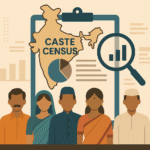Beyond Numbers — Minimum Wage as a Human Rights Imperative
The minimum wage debate is often trapped in abstract economic models, political soundbites, and corporate boardroom discussions. Yet, at its core, it is a deeply human issue — one that speaks to the dignity of labor, the right to a decent life, and the collective conscience of societies.
For millions of workers around the world, a fair minimum wage is not about disrupting economic efficiency — it is about survival, security, and hope. It is fundamentally tied to the right to just and favorable remuneration, as enshrined in Article 23 of the Universal Declaration of Human Rights UDHR. Seen through the eyes of workers, minimum wage policies are not luxuries of prosperous economies but essential tools for realizing the basic promises of equality and justice.
The Right to a Decent Standard of Living: Minimum Wage as Human Dignity
The minimum wage is more than a paycheck — it is the bridge to food security, access to healthcare, education for children, and a life of dignity. The International Covenant on Economic, Social and Cultural Rights (ICESCR) explicitly recognizes the right of everyone to a remuneration ensuring “a decent living for themselves and their families.”
When minimum wages are suppressed or ignored, workers are trapped in cycles of poverty despite full-time employment — the phenomenon of the “working poor.” Their labor powers industries, builds infrastructure, and fuels economies, yet they remain invisible in the calculations of profit and growth.
Without adequate wages, the very notion of human rights becomes hollow, particularly for those who rely on manual, agricultural, and service sector work to survive.
The Political Struggle over Minimum Wage
The minimum wage debate reveals a broader political struggle between competing visions of society:
- Worker-centered and rights-based perspectives advocate for living wages that empower individuals, strengthen families, and foster inclusive economic growth.
- Market-centric and neoliberal perspectives view minimum wage increases as distortions that threaten business competitiveness and job creation.
Under the banner of “economic freedom” and “market efficiency,” many governments have resisted or weakened minimum wage laws, often under pressure from corporate interests.
Yet for workers, “economic freedom” without fair wages is merely the freedom to be exploited.
The politics of minimum wage is, therefore, a politics of visibility: Will the realities of workers’ lives be acknowledged, or sacrificed at the altar of economic orthodoxy?
Economic Growth vs. Social Justice: A False Dichotomy
Corporate lobbyists and some policymakers argue that raising the minimum wage will harm job creation, increase automation, or push small businesses into bankruptcy.
However, mounting empirical evidence challenges these assumptions:
- Modest minimum wage increases often lead to higher worker productivity, lower employee turnover, and greater consumer spending — all of which stimulate economic growth.
- Studies from cities like Seattle and countries like Germany show that raising minimum wages did not lead to large-scale job losses, but improved living standards for low-wage workers.
Economic growth without social justice produces hollow prosperity, where GDP numbers rise but inequality deepens and social fractures widen. A true balance must prioritize the human face of economics — the workers who sustain economies with their labor and aspirations.
Global Perspectives: Workers at the Forefront
The struggle for fair minimum wages is not confined to one country; it is a global fight:
- In the United States, the “Fight for $15” movement has galvanized millions of workers demanding a living wage.
- In New Zealand, the adoption of a living wage framework has significantly improved worker well-being.
- In developing countries, where informal employment dominates, minimum wage policies are critical yet often unenforced, leaving millions vulnerable to extreme exploitation.
Global supply chains also exacerbate wage suppression. Corporations often relocate production to countries with the lowest labor standards, leading to a “race to the bottom” that systematically undermines workers’ rights worldwide.
Without international labor solidarity and enforceable global standards, the working poor will continue to bear the brunt of globalization’s dark underbelly.
Minimum Wage, Global Inequality, and Corporate Responsibility
Minimum wage debates must also confront global economic inequality:
- Workers in low-income countries often toil in hazardous conditions for wages far below any reasonable survival threshold.
- Multinational corporations, while celebrating profits in Western capitals, rely heavily on the cheap labor extracted from workers in the Global South.
The globalization of commerce must be matched by the globalization of labor protections. Corporate social responsibility cannot remain a marketing slogan; it must translate into real, verifiable actions to respect and uphold workers’ rights across borders.
Human Rights-Based Approaches to Wage Policies
To move beyond token reforms, countries must adopt a human rights-based approach to minimum wage setting:
- Living wages — not merely minimum survival wages — must be the goal.
- Worker participation in wage-setting mechanisms must be ensured.
- Accountability frameworks linking labor rights with trade and investment agreements must be created.
- Social protection floors, as advocated by the International Labour Organization (ILO), must be recognized as a global standard.
Workers must be treated not merely as economic units, but as rights-holders whose well-being is integral to societal progress.
Conclusion: Toward Equitable Growth Rooted in Human Dignity
The minimum wage is not simply an economic figure to be adjusted periodically.
It is a statement of values: a declaration about who matters in society.
If economies are judged solely by the wealth of their corporations and the dynamism of their markets, then the needs of workers will forever be marginalized.
If, however, economies are judged by their ability to uphold human dignity, reduce inequality, and empower the vulnerable, then minimum wage policies must be front and center.
Balancing economic growth and social justice is not just possible — it is necessary.
In the words of former ILO Director-General Juan Somavia:
“Poverty anywhere is a threat to prosperity everywhere.”
The call from workers around the world remains clear: We do not seek charity. We demand justice.
References
International Labour Organization. Minimum Wage Systems: General Survey of Practices and Regulations. International Labour Office, 2014.
International Labour Organization. Global Wage Report 2020–21: Wages and Minimum Wages in the Time of COVID-19. International Labour Office, 2020.
United Nations. Universal Declaration of Human Rights. United Nations, 1948, www.un.org/en/about-us/universal-declaration-of-human-rights. Accessed 25 Apr. 2025.
United Nations Office of the High Commissioner for Human Rights (OHCHR). International Covenant on Economic, Social and Cultural Rights. United Nations, 1966, www.ohchr.org/en/instruments-mechanisms/instruments/international-covenant-economic-social-and-cultural-rights. Accessed 25 Apr. 2025.
Dube, Arindrajit. “Minimum Wages and the Distribution of Family Incomes.” American Economic Journal: Applied Economics, vol. 11, no. 4, 2019, pp. 268–304.
Neumark, David, and William L. Wascher. Minimum Wages. MIT Press, 2008.
Belman, Dale, and Paul J. Wolfson. What Does the Minimum Wage Do? W.E. Upjohn Institute for Employment Research, 2014.
Bivens, Josh, et al. Raising the Federal Minimum Wage to $15 by 2025 Would Lift Wages for Over 33 Million Workers. Economic Policy Institute, 2019, www.epi.org/publication/raising-the-federal-minimum-wage-to-15-by-2025/. Accessed 25 Apr. 2025.
About the Author
Dr. Waseem Ahmed is a distinguished scholar and human rights advocate. He serves as Assistant Professor of Political Science at Glocal Law School, Glocal University, Saharanpur, and holds additional charge as Dean (I/c), School of Arts and Social Sciences, leading academic and research work in law, rights, and political thought.


